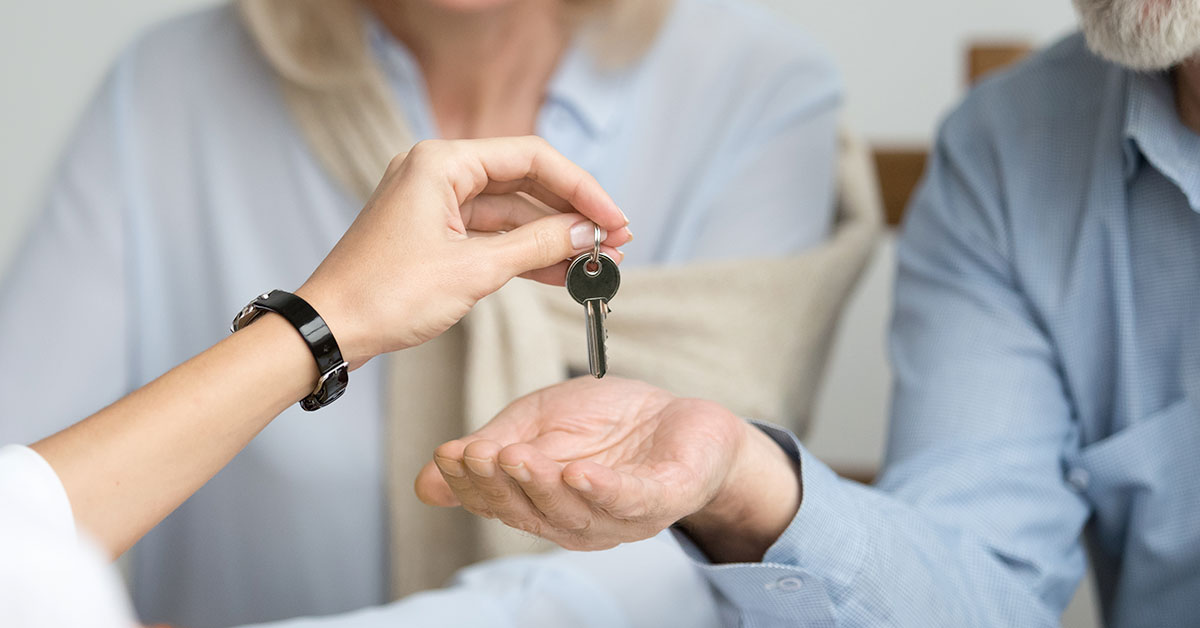
Buying property abroad is an attractive prospect for many property investors, looking to purchase a vacation home, retirement property or as an addition to an investment portfolio. As to be expected, it can be a daunting process which is often rather more complex than purchasing property in your home country. There are several factors to consider, including gaining an understanding of foreign property laws, and managing the exchange of currency and taxes.
In this guide, you will be introduced to the essential steps for buying property abroad, from the initial market research stage, to securing financing and addressing legal requirements. Gaining understanding of the crucial steps involved will allow you to make informed decisions, and avoid common mistakes made by careless investors.
Why Buy Property Abroad?
 Foreign property can offer many unique benefits that cater to specialised needs of homeowners and investors. These can be financial, with property abroad potentially offering higher upsides in terms of financial gain, or lifestyle based – the attractive prospect of moving abroad can offer an escape from a lifestyle in your home country, during holiday seasons or more permanently.
Foreign property can offer many unique benefits that cater to specialised needs of homeowners and investors. These can be financial, with property abroad potentially offering higher upsides in terms of financial gain, or lifestyle based – the attractive prospect of moving abroad can offer an escape from a lifestyle in your home country, during holiday seasons or more permanently.
Investment opportunities
Compared to domestic markets, international real estate can offer higher returns on investment. This can come in the form of property appreciation or rental income. Countries such as Spain, Portugal and Thailand have seen significant growth in their real estate sectors. Furthermore, rental income can provide a steady cash flow if the right location is chosen. Holiday destinations, business districts and cities with demand for short-term rentals are ideal candidates to target.
Diversification
By spreading assets across borders, risk is spread throughout a diverse portfolio. This becomes particularly valuable when domestic markets are slow, allowing you to hedge domestic investment with potentially faster-moving international markets. Political unrest can affect property values, so a globally diversified portfolio is key to protecting your overall investment. In addition, some countries may offer favourable tax laws for foreign investors – this may be reduced capital gains tax or exemptions on rental income tax. It’s important to check local laws to inform your decisions.
Lifestyle change
Owning a vacation home abroad can offer multiple benefits. As a personal getaway, second homes facilitate flexible trips without the hassle of booking accommodation. When it’s not being used, it can then become a rental property through the use of platforms such as Airbnb and Booking.com which offer short-stay rentals. In addition to diversifying your investment portfolio, vacation homes can offer a diversification of culture – without being constrained to a 1 or 2 week stay in a hotel for example, vacation homes can offer access to new cultures, languages and traditions to a greater level than a short stay can provide. Furthermore, schemes such as Portugal’s Golden Visa offer residency or even citizenship through property investment, bringing the benefits of EU travel, local healthcare and tax benefits.
Steps to Buying Property Abroad
The following steps are the essential milestones involved in purchasing property abroad, arranged in a chronological roadmap format.
Market Research
Before launching into the purchase process, it is important to conduct thorough research into the property market of your chosen country. Through analysis of market trends, prices and overall economic stability, you can build a clearer picture of the region you are looking to purchase in. Defining your goals for your purchase, whether it be securing high rental demand, or a scenic area for a vacation home will guide the locations to target. Looking toward future growth potential would be the next step, considering any upcoming infrastructure projects that could boost property value in the future. Then informing yourself of local rules and regulations is key to avoiding nasty surprises – for example, in Thailand, foreigners may buy condos but not own land. If in doubt, consult local experts for a deeper understanding of the market. Insider knowledge may prove invaluable when considering an area’s potential.
Budgeting & Finance
When creating a budget, you should include all the additional expenses that come with purchasing property including taxes, legal fees and maintenance/renovations. This should also include a buffer for currency fluctuation – this can affect the total cost of your purchase. Monitor the exchange rate, and consider currency hedging strategies to reduce the financial impact of fluctuations. Financing options to consider would be a foreign mortgage, although these can often be more complicated than domestic mortgages, with terms for foreigners often requiring larger deposits (often 30-50%) and proof of income. It may be easier to seek financing from your home country, then use it to buy abroad. There are specific companies which offer construction loans, which are loans specifically designed to accommodate for building properties. Alternatively, certain international property developers can offer payment plans – again, consult a legal expert to ensure their safety and reliability.
Legal & Tax Considerations
It isn’t advisable to navigate local laws yourself – a qualified local attorney can help deal with issues of language barriers and unfamiliar laws. They can also assist with contracts and legal documents, protecting your interests throughout the transaction process. As mentioned earlier, a legal professional can help guide buyers through foreign ownership laws and tax implications, as well as relevant inheritance laws. One legal agreement to consider is whether the country you’re buying in has a Double Taxation Agreement (DTA) with your home country. This prevents you from being taxed twice on the same income, whether it be rental income or capital gains.
Local Professionals
Hiring a trusted local real estate agent is highly recommended. They can save time and effort by guiding you throughout the process, sourcing properties and imparting local knowledge. Look for a licensed agent that has a proven track record with foreign buyers. Other than lawyers and real estate agents, a notary and registrar can serve as an impartial third party in finalising the property transaction, ensuring that all legal requirements are met and that all documentation has been signed.
Visit the Property
Photos and videos can be misleading, so it is important to visit the property before making a purchase. Assess the local area, check the condition of the property and look at access to amenities and noise levels etc. Structural issues can be costly, that need to be identified and factored into your overall budget. While virtual property tours might be an attractive, time saving option, you will need to make sure to have trusted professionals attend the property in person to inspect it.
Finalising the Purchase
 After agreeing a price, a deposit will have to be made. In many areas, this is non-refundable – be sure to have everything in order before proceeding, and the contract has been reviewed by your legal representative. Some countries may require a preliminary agreement (sometimes referred to as a reservation or option agreement), which confirms the final price, and removes the property from the open market. Once all the contracts have been signed and the payment has been made, you will need to register the property in your name. This process varies by country. Additional fees can include closing costs, legal fees, notary fees and taxes. You may also encounter property transfer taxes, which are most likely to be a percentage of the final purchase price. As always, for currency news and insight into the world of currency, make sure to stay up to date with our Expert Analysis, as well as our daily Market Commentary.
After agreeing a price, a deposit will have to be made. In many areas, this is non-refundable – be sure to have everything in order before proceeding, and the contract has been reviewed by your legal representative. Some countries may require a preliminary agreement (sometimes referred to as a reservation or option agreement), which confirms the final price, and removes the property from the open market. Once all the contracts have been signed and the payment has been made, you will need to register the property in your name. This process varies by country. Additional fees can include closing costs, legal fees, notary fees and taxes. You may also encounter property transfer taxes, which are most likely to be a percentage of the final purchase price. As always, for currency news and insight into the world of currency, make sure to stay up to date with our Expert Analysis, as well as our daily Market Commentary.
Caleb Hinton
Caleb is a writer specialising in financial copy. He has a background in copywriting, banking, digital wallets, and SEO – and enjoys writing in his spare time too, as well as language learning, chess and investing.



